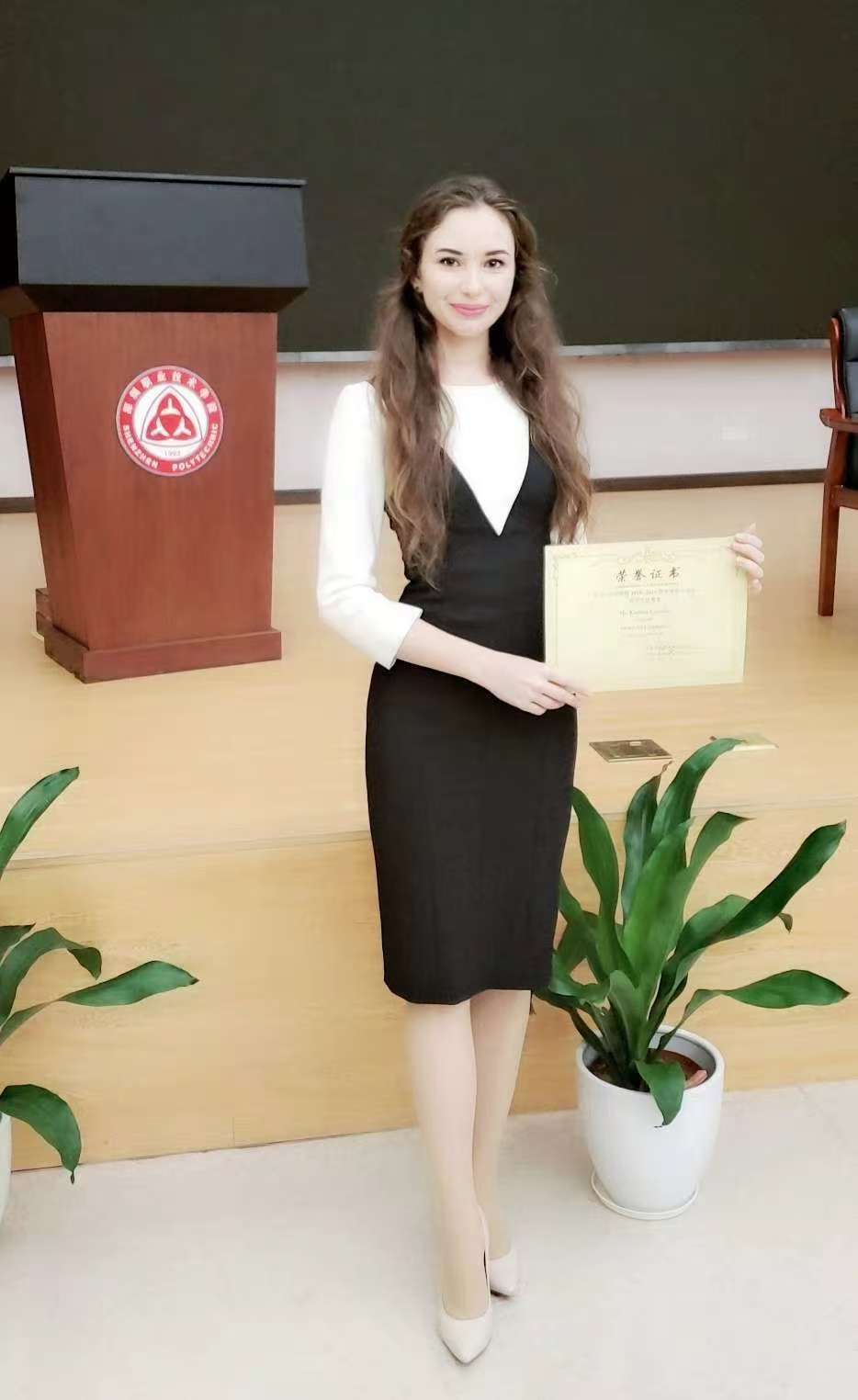More than words: Becoming myself in Chinese
Writer: Jane Kozlova | Editor: Lin Qiuying | From: Original | Updated: 2025-05-07
The day I first stepped onto campus, I felt like I was walking into a dream. Towering palm trees lined the wide stone paths, mangoes hung from branches within arm’s reach, and the air smelled of sea and sunshine. The university buildings were sleek and modern, fitted with projectors, whiteboards, and computers that worked faster than anything I had ever used back home. The classrooms were bright, the staff welcoming, and the entire atmosphere felt like a place where something good could happen. I remember thinking, “This isn’t just a school — this is a whole new world.”
Even the cafeteria blew me away. The food was not only delicious, but shockingly affordable — until I ran out of money one day. I remember that moment clearly: it was the end of the month, and I had only 6 yuan left on my meal card. I stood at the counter with a plate of the cheapest food I could find, which came to 8 yuan. I tapped my card and the screen blinked red: insufficient funds. My heart dropped. The cafeteria worker looked at me, then at the screen, and I stammered, “对不起,我没钱...” I was mortified. But to my surprise, he just smiled and waved me off: “没事,你去吧。” I walked away stunned, clutching my tray like it was gold.

A host at the university's event in 2019.
On the first day of school, I was placed in Level 5, just one step below the highest level. I was thrilled… and confused. How could I be in Level 5 when I could barely hold a conversation? I kept wondering if there had been a mistake. Everyone around me seemed so confident, so fluent, while I felt like a child learning to speak all over again.
My dorm room was small but cozy, and I shared it with another Russian girl. We became fast friends, bonding over our shared confusion, excitement, and — let’s be honest — our shared horror at discovering the bathroom had a squat toilet. In Russia, only the most remote countryside places had those, and here they were, a daily reality. It was humbling. But also, strangely, it made me feel like I was really in China.
Every day, I treated school like a full-time job. I had 100% attendance, not out of fear, but out of purpose. If the teachers showed up every day, so would I. After classes, I would eat quickly and head straight to my room to start on homework while the material was still fresh. I studied until late into the night, writing and rewriting characters, reading aloud, singing Chinese pop songs, and watching TV dramas with subtitles. My favorite way to learn was through music — something about melody made the tones easier to remember. It wasn’t easy, but I didn’t feel tired. It was like my life had finally found a rhythm that matched my heartbeat.
One of my classmates once told me about a local dance studio that offered Latin classes. I had danced since 6 years old, so I went just to see — and never left. That’s how I found bachata, a dance that would become part of my identity. Spoiler: I later became an assistant teacher there.

I win SZ government scholarship for excellent study in 2019.
Around that time, the university announced a city-wide Chinese language competition hosted by Shenzhen Media Group. My heart skipped a beat when I heard the news. Could I really do it? I hesitated at first, unsure whether I belonged on a stage speaking Chinese. But I signed up. I’ll save the full story for later, but let’s just say — that’s how I ended up on TV for the first time in China. (Any guesses which place I got?)
And Taobao… oh, Taobao. What a journey. I remember ordering a dress that looked stunning in the picture — flowy, pastel, delicate. What arrived? A stiff, neon pink disaster that barely resembled fabric. I thought maybe I could at least wear it at home. But as I slipped it on, the zipper exploded off like a firecracker. I returned it and wrote my very first product review in Chinese: “不推荐!像塑料袋!” (Not recommended! Like a plastic bag!)
What pushed me through these awkward moments, cultural shocks, and exhausting study sessions wasn’t just ambition — it was love. A deep, growing love for the language, the culture, and the version of myself that was starting to emerge. I felt myself changing.
The girl who once froze during a WeChat interview, hiding Google Translate behind her phone, was now helping classmates understand grammar rules. The girl who once cried in frustration over tones was now singing Chinese songs at the top of her lungs in the shower.
There were hard days, of course. Days when my head felt full of bricks and every character looked the same. But there was always something — a kind gesture, a new phrase I finally understood, the rhythm of bachata in the evening — that reminded me: I belonged here.
I often think back to that cafeteria moment. The man who let me take the food anyway didn’t just save me from hunger; he reminded me that kindness exists everywhere. That strangers can make you feel seen.
Learning Chinese wasn’t just about grammar and tones. It was about learning to trust myself again. It was about falling in love with the process. It was about staying — even when it was hard.
This wasn’t just a language school. This was life school.
And I was finally passing the test.